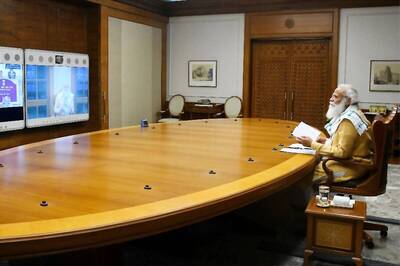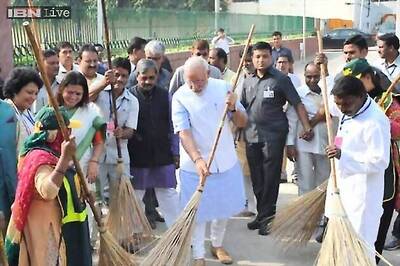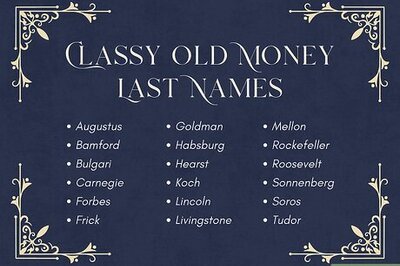
views
New Delhi: After a not so pleasant experience of engaging with Anna Hazare's team in drafting of the Lokpal Bill, the government says that there will be no such experiment in the future.
HRD Minister Kapil Sibal, one of the key members of the joint committee for drafting the Lokpal Bill, also maintains that it cannot be cited as a precedent.
He says the draft of the bill will undergo changes after consultations with political parties and other members of the civil society.
"I don't say it is a precedent. In the given situation, the government was in, it is a decision that we took with open eyes and I don't consider it to be a precedent... the government was in a particular situation," Sibal told PTI in an interview.
He was asked if in the future some activists could resort to agitation to be part of the law-making process.
Asked if it was a "one-off" episode, the noted lawyer-turned-politician said, "I would imagine so."
Sibal emphasised that the draft bill prepared by the five ministers was not the "final bill" and "it will go through changes when we get inputs not just from other political parties but also other members of civil society".
The government is holding a meeting with political parties on the issue on July 3.
Sibal refused to make any comment on Hazare's decision to go on hunger strike again from August 16 but said "when that situation arises, I am sure the government will deal with it."
Noting that Hazare's associates Justice Santosh Hegde and Swami Agnivesh had publicly stated that the "fast is not the way", the Minister said he was sure that the Gandhian "has the wisdom to decide what is best for him and the country".
He maintained that Hazare and his associates had wanted to create an authority outside the system which would be "accountable to nobody" and asserted that this could not be allowed to happen.
Asked why the committee could not firm up a common draft and wound up work in bitterness, Sibal said, "On certain very significant issues, there was a huge divergence of perception and opinion, and the twain could not meet."
The committee, which met nine times during two months since it was set up in April, failed to firm up a single draft of the bill and it was decided that a note including views of both the government and Hazare's team would be put up before Cabinet for consideration.
Insisting that bringing Prime Minister under Lokpal was never the "central" issue of the committee's discussions, Sibal said, "I think the basic issue was how do you set up an authority outside the system not accountable to anybody.
"How do you ensure that that authority, which is outside the system, will function in a chaste manner, uncorrupted, only because it is under the Lokpal. These are the essential issues that were of concern to us, on which, of course, there was huge divergence of opinion."
However, Sibal termed the experience of working with civil activists in law-making as "enriching" and would not "castigate" the views of Hazare team which included Karnataka Lokayukta Justice Hegde, father-son lawyer duo of Shanti Bhushan and Prashant Bhushan and RTI activist Arvind Kejriwal.
Rejecting Hazare's contention that he was not seeking to create a "parallel" structure to the government, the minister said the activist's comparison of the Jan Lokpal with institutions like CVC and CBI was "completely arduous".
On the issue regarding Ramdev, Sibal said the government was able to "expose" what the yoga teacher stood for.
"We exposed him in the sense that actually he was negotiating with us and giving promises to us and was doing just the opposite at Ramlila ground contrary to the permission granted," he said.
Sibal dismissed suggestions that the government was embarrassed over four union ministers visiting Ramdev at the airport and that there was a sense of uneasiness in the party on the issue.
"Ultimately the government was able to expose what Ramdev really stood for. Had we not met him, we would never have been able to expose him," he said.


















Comments
0 comment